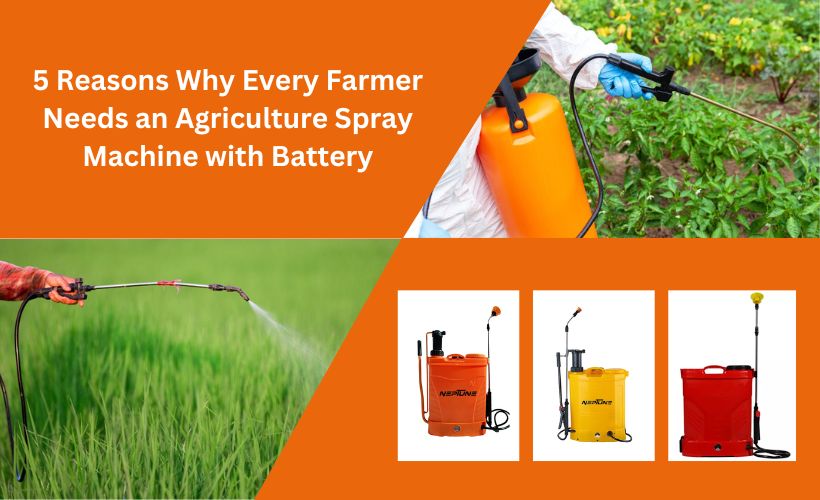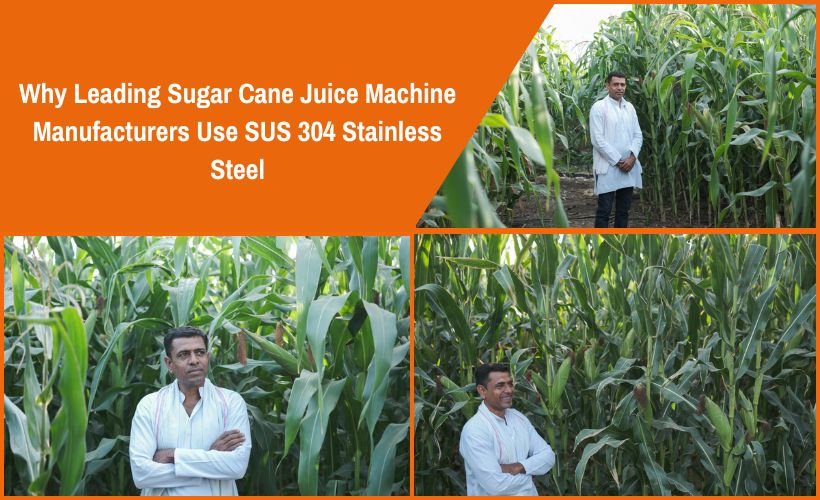Agriculture spray machines are essential tools for farmers to apply pesticides, herbicides, and fertilizers to their crops efficiently. While traditional sprayers powered by internal combustion engines have been widely used, battery operated spray pump are gaining popularity due to their numerous advantages. Here are five compelling reasons why every farmer should consider investing in an agriculture spray machine with battery:
1. Environmental Friendliness
Reduced Emissions: Battery operated spray pumps emit significantly fewer pollutants than gasoline-powered ones, contributing to cleaner air and a healthier environment.
Noise Reduction: Battery sprayer operate at lower noise levels, minimizing disturbance to wildlife and nearby communities.
2. Improved Efficiency
Precise Application: Battery sprayers for agriculture offer more precise control over the application rate and spray pattern, ensuring optimal coverage and minimizing waste.
Lightweight Design: These machines are generally lighter and easier to maneuver, reducing operator fatigue and increasing productivity.
3. Cost-Effective Operation
Lower Maintenance: Battery pumps require less maintenance compared to gasoline-powered models, saving farmers time and money on repairs and replacements.
Reduced Fuel Costs: Eliminating the need for fuel can result in substantial cost savings over time.
4. Greater Flexibility
Cordless Convenience: Battery sprayers offer greater flexibility and mobility, allowing farmers to easily access remote areas and work on uneven terrain.
Indoor Applications: In certain cases, sprayers can be used indoors for controlled applications, such as in greenhouses or storage facilities.
5. Enhanced Safety
Reduced Fire Risk: Battery sprayers eliminate the fire hazards associated with gasoline-powered machines, providing a safer working environment.
Operator Comfort: Many sprayers feature ergonomic designs and vibration-reducing features, enhancing operator comfort and reducing the risk of injuries.
Choosing the Right Battery-Powered Spray Machine
When selecting a battery operated spray pump, consider the following factors:
Battery Capacity: The battery capacity determines the machine’s operating time before requiring a recharge. Choose a model with a battery capacity that suits your specific needs and the size of your farm.
Spray Volume: The spray volume determines the amount of liquid the machine can deliver per unit of time. When selecting the appropriate spray volume, consider the type of application and the size of your crops.
Nozzle Type: Different nozzle types produce various spray patterns and droplet sizes. Choose a nozzle suitable for the specific application and crop type.
Spray Pressure: The spray pressure affects the penetration of the liquid into the target area. Select a machine with adjustable spray pressure to accommodate different application requirements.
Farmers can enhance their efficiency, reduce costs, improve safety, and contribute to a more sustainable agricultural environment by investing in a battery-operated spray pump.
Frequently Asked Question
Q1. How long does the battery last on a battery-operated spray pump?
The battery life of a battery-operated spray pump varies depending on the model and usage. On average, a fully charged battery can last between 4 to 8 hours of continuous spraying. It’s important to check the battery capacity and ensure it meets the needs of your farm size and application frequency.
Q2. Can a battery sprayer be used for all types of crops?
Yes, a battery sprayer for agriculture is versatile and can be used on various types of crops, including fruits, vegetables, and grains. However, selecting the appropriate nozzle and adjusting the spray pressure is essential for different crops to ensure optimal coverage and avoid damage.




